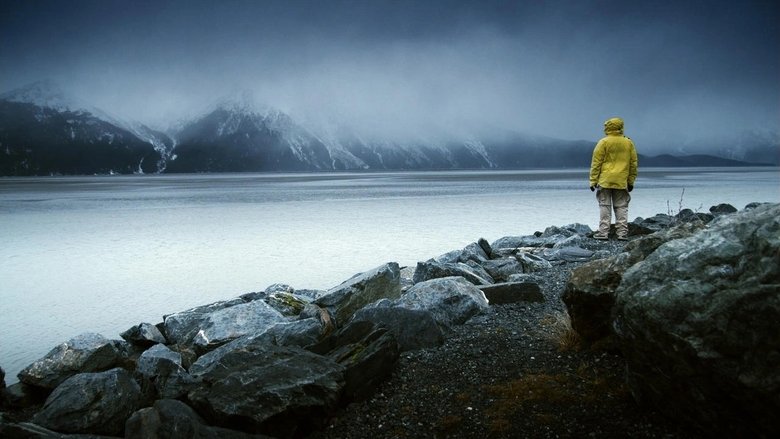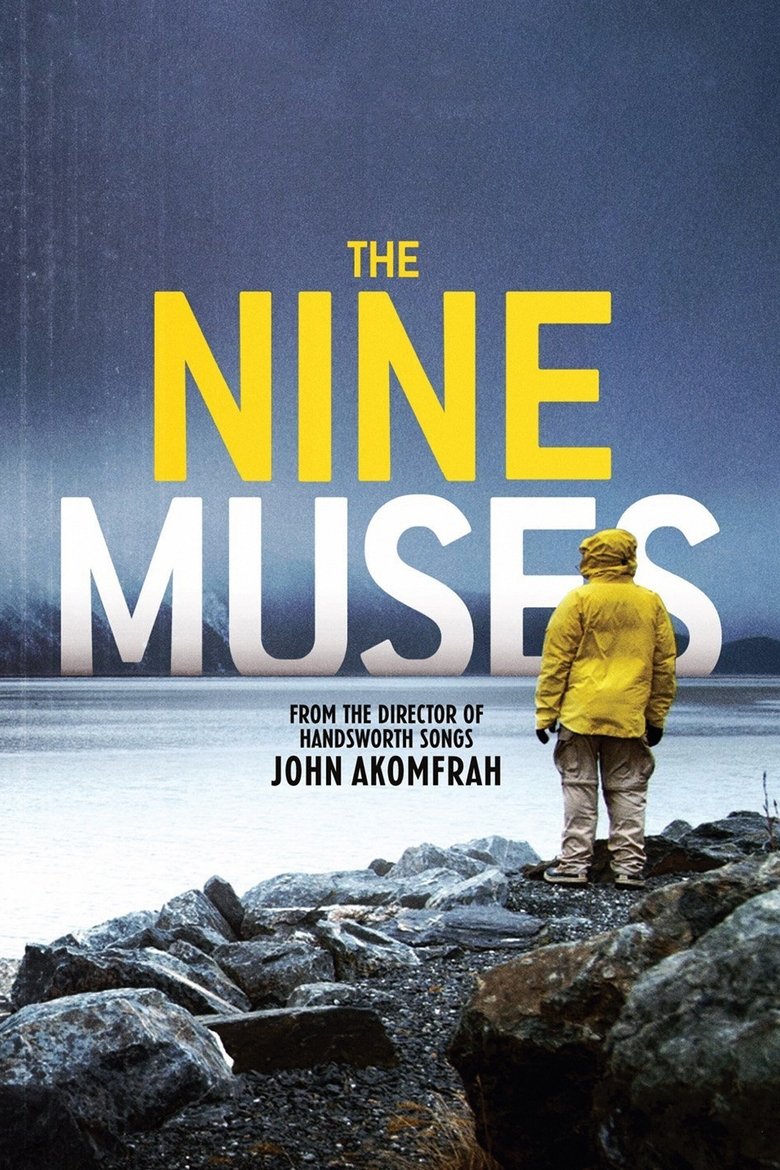Loading


The Nine Muses
Genres
DocumentaryHistory
Overview
Part documentary, part personal essay, this experimental film combines archive imagery with the striking wintry landscapes of Alaska to tell the story of immigrant experience coming into the UK from 1960 onwards.
Details
Budget
$0
Revenue
$0
Runtime
94 min
Release Date
2010-09-01
Status
Released
Original Language
English
Vote Count
6
Vote Average
5.6
Cast
Meet the talented actors who bring the movie to life.
Similar Movies
Explore movies similar to this one that you might also enjoy.
10.0
Every Ambulation a Betrayal
Return to 'burn' only to find out you're already in that urn.
2017-05-23 | en
0.0
The Homes We Carry
Hammer and compass in Mozambique. We see a GDR flag waved at a rally in Maputo, carried by "Madgermanes", contract workers who once toiled in eastern Germany. Some of them founded families there, like Eulidio. His daughter Sarah grows up with her mother in Berlin. The relationship with her "second home" is slow in growing, partly thanks to Luana, Sarah's baby, whose father, Eduardo is also from Mozambique.
2022-10-18 | de
7.5
The Mind and the Crime
The discovery of a human torso thrown into a waterway, leads the viewer to observe the work of modern criminology and the task of special agents to track and record the psychopath's mentality through the elucidation of techniques present in the reality of the police investigation.
1961-01-01 | es
4.2
Blow Job
Andy Warhol directs a single 35-minute shot of a man's face to capture his facial expressions as he receives the sexual act depicted in the title.
1964-07-16 | en
6.0
Europe by Bidon
Biodun is Nigerian. In this animated documentary, he tells the story of his journey on foot from Lagos to Paris, how he survives with a container (un bidon) and thanks to his courage. With his amazing patter, he transforms the events into extraordinary adventures.
2022-12-31 | fr
0.0
Your Ecstatic Self
Your Ecstatic Self is a conversation unfolding in a car with Sajid, the artist’s brother. As the journey progresses Sajid discusses his engagement with the philosophy and practice of Tantra, having spent the majority of his 44 years as a strict Sunni Pakistani Muslim. Placing the idiosyncrasies of western fetishism towards eastern philosophical traditions alongside cultural orthodoxies and ancestral knowledge, Your Ecstatic Self takes up multifaceted expressions of desire, intimacy and sexual agency.
2020-02-17 | en
4.3
Claudette's Star
Acting as part ode and through a series of interpretations, Claudette’s Star depicts young artists considering with sheer wonder who is given a voice.
2019-12-05 | en
7.0
Straits of Magellan: "Drafts and Fragments"
A sampling of forty-nine fragments from Frampton's catalogue of 'actualities', the films from STRAITS OF MAGELLAN: "DRAFTS AND FRAGMENTS" are all silent and unedited. Several invoke, directly, the work of the Lumieres, as in Frampton's reworking of DEMOLITION D'UN MUR (1895) in which a dilapidated farm silo is demolished in place of the Lumieres' wall. He makes reference to his own work and plays homage to the work of contemporaries. A complex range of formal issues are raised in other fragments. Finally, Frampton offers a number of analogues for the act of filming and cinematic seeing that includes a series of appropriated 'lenses' ( a stone portal, a wooden silo) and a set of 'screens' a pool of water, curtains, a dusty window).
1974-02-13 | en
0.0
Living in the World
An auto-documentary about a disenfranchised Everyman and his struggle to re-integrate himself into society. He fails and turns to crime.
1985-01-01 | en
0.0
Suena la trompeta, ahora veo otra cara
A homage to Andrei Tarkovski made for the Spanish edition of the Chris Marker movie 'Une journée dans la vie d’Andrei Arsenevich'.
2007-01-01 | xx
4.0
París #1
A group of friends share a cinematographical experience in a particular region of Spain, Galicia. The goal is simple: to film what they like, without preconceived ideas about what should be filmed. They want their images to reflect the feelings that unite them with the people they find along the way.
2008-01-01 | gl
10.0
A letter to Nikola
As a letter to her son, the filmmaker testifies her experience as a photographer aboard the Aquarius, a ship that rescued 29,523 people in the Mediterranean between 2016 and 2018.
2021-10-28 | el
6.5
C-Film
Two women in a living room: smoking, playing cards, listening to the radio. As often in Dwoskin’s films, the use of masks, make-up and costumes allows the characters to playfully transform themselves. Shot in colour film, C-film exuberates swinging London energy. In the second part of the film, the women appear to be watching the rushes of the film on an editing table. ”We are making a movie” we hear them say. As Dwoskin points out, “C-film asks how much is acting acted”, an ongoing question in Dwoskin’s cinema. Produced by Alan Power, with Esther Anderson & Sally Geeson.
1970-01-01 | en
8.1
Home Movie: On the Set of Philippe Garrel's 'Le lit de la vierge'
An experimental and poetic portrait of a woman.
1968-12-31 | fr
0.0
One Half of Wealth for One Half of Beauty
Anything that complies with standards is a wasted effort to Vlado Kristl: 'I believe in only doing those things that decompose and tear conventional systems apart.' Kristl's métier are borderlines. His paintings and animated films are interspersed with clear dividing lines, only for him to blur and mess them up. His graphics are scribbled over and over again until the whole surface becomes black. His oil paintings, unless someone buys them in time, are painted over and over again. He destroys any form that begins to grow. -Thomas Brandlmeier
1994-01-01 | de
0.0
Document 6.15
Experimental film by Motoharu Jonouchi comprised of both archival footage from the 1960s Japanese student riots and dramatised re-enactions. It was created as a tribute to Michiko Kamba, a student victim of the riots.
1961-09-01 | ja
6.4
Decasia: The State of Decay
A meditation on the human quest to transcend physicality, constructed from decaying archival footage and set to an original symphonic score.
2002-01-24 | en
6.5
Almost Nothing: So Continues the Night
For us, a thought always presupposes a society, a culture and above all the consciousness of time. We are haunted by immortality, human notion par excellence. As if the world was here to fascinate us. And to disappoint us. The film travels around the bulb like the Earth around the Sun. Light makes the film visible. A fragile film, like our existence. In the orbit of the film tragedy and our reality, the image resists the cruelty of the experiment.
2017-09-30 | hr
5.8
Congo
An experimental ethnographic documentary that criticizes the colonizer view of anthropology.
1972-01-01 | en
3.8
60 Seconds of Solitude in Year Zero
An anthology of one-minute films created by 51 international filmmakers on the theme of the death of cinema. Intended as an ode to 35mm, the film was screened one time only on a purpose-built 20x12 meter public cinema screen in the Port of Tallinn, Estonia, on 22 December 2011. A special projector was constructed for the event which allowed the actual filmstrip to be burnt at the same time as the film was shown.
2011-12-22 | en